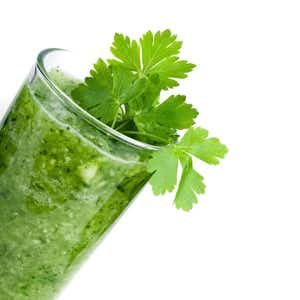
There are precious few good medications for people who suffer chronic pain. NSAIDs like diclofenac, ibuprofen or naproxen can cause bleeding ulcers as well as cardiovascular complications. Anticonvulsant drugs such as Cymbalta or Lyrica can be helpful for neuropathic pain, but they have other downsides and can be quite difficult to stop. The opioid epidemic has made it clear that narcotics, while helpful for acute pain, are far from ideal for controlling chronic pain. Is there a way to concoct an ideal smoothie that might help?
Searching for an Ideal Smoothie for Everyday Pain:
Q. My husband and I are in our early 60s and lead an active lifestyle, working in town and living on a homestead with livestock. My husband spent 25 years in the military and was also a competitive runner. So he has flat feet and hip pain. Both of us worry about our cardio and brain health (fearing dementia as do most older Americans).
I’m hoping you might advise on the ideal smoothie we can drink daily. I already put in turmeric, black pepper to activate it, yogurt and flaxseed meal with fruits, kale and coconut milk. Should there be other herbs or spices to help with pain and brain health?
Ideal Smoothie Ingredients for Brain Health:
A. Your smoothie already sounds packed with good stuff. Turmeric is anti-inflammatory and can help with chronic pain (Amalraj et al, Journal of Medicinal Food, Oct. 2017). We like berries in a smoothie, and there is evidence berries can promote good cognitive function (Pribis & Shukitt-Hale, American Journal of Clinical Nutrition, July 2014, Suppl. 1). For further brain health benefits, you might consider adding a half teaspoon of rosemary or sage (Hügel, Advances in Experimental Medicine and Biology, 2015). That will influence the flavor, so you may have to experiment a bit.
You can learn more about rosemary, turmeric (and why black pepper helps) and many other spices in our book, Spice Up Your Health. We also offer a recipe for Joe’s ideal smoothie in Recipes & Remedies. At this time, you’ll find a combination offer, our In the Kitchen Holiday Bundle.
Watch Out for Too Much Kale:
A few more words on your ideal smoothie: you need to keep an eye on your kale consumption. Overdosing on kale by drinking a raw kale smoothie every day can result in an overload of oxalate that could harm the kidneys (Khneizer et al, Journal of Nephropathology, July 2017). You’ll probably want to switch to other vegetables for some of your smoothies.
Brain & Heart:
Regular exercise and a Mediterranean-style diet have been shown to benefit cognitive function as well as cardiovascular health (Jackson et al, Journal of Physiology, Aug. 15, 2016). Clearly, you are getting plenty of physical activity. Making sure that you are also getting plenty of produce (homegrown?) as part of a Mediterranean-type diet should also help.

